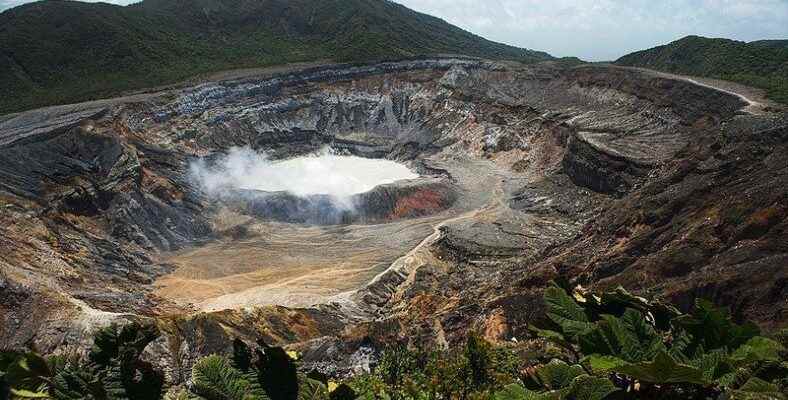Scientists searched for bacteria that somehow survived in one of the world’s most uninhabitable places; Bacteria from a hot, poisonous, acidic lake in a volcanic crater in Costa Rica are likely to live on Mars.
Not much, the other day NASA’s reconnaissance vehicle on Mars Discovered ‘Organic Molecules’ and tell you about the question of whether they could be remnants of life we explained. Briefly, if we remind you again for informational purposes; It should be noted that one of the most important tasks of the Perseverance rover on Mars is to collect information on the remains of life. Naturally, when the word organic is mentioned, the remains of living life do not come to mind. But NASA The statement made by the company is that this is not exactly the case.
indicating that there are both biological and non-biological mechanisms that create organic molecules. NASA, is of the opinion that this discovery should not be considered as a finding on the remains of life. Discovery middleman also by studying the structure of the crater lake bed revealed that this region was formed as a result of lava flows. Now in Costa Rica poas There are rumors about the possibility of harmful bacteria living on Mars in the hydrothermal crater lake of the volcano.
Harmful bacteria found in crater lake of Poas volcano in Costa Rica
Astrobiologist Justin Wang from the University of Colorado Boulder made the following statement about this lake; “One of our key findings is that volcanic at Lake Only a few type microorganism that we identified but in large numbers for their survival. potential path their use necessary. even that, explosions when it occurs your lake what they did by surviving on the fringes we think. It exploits the effects of relatively bacteria having a wide array of genes.” he finished his statement.
Lake, Laguna Caliente literally ‘warm lake’ It is known as and is located in the crater of the active Poas Volcano in Costa Rica. The lake is one of the most acidic lakes in the world, with a layer of liquid sulfur that often creates local acidic rains and fogs. The lake’s water is also poisonous. with metals It creates a very dangerous environment for living things because it is full.
RELATED NEWS
Billion-Year-Old Water Traces on Martian Surface Examined: Estimates Are Not Encouraging
In the following years, several explosion had happened and the team see if there are changes in microbial diversity and organisms biochemical to more comprehensively examine the processes in 2017 began to actively pursue his work. This latest study shows that the biodiversity is slightly higher, but still acidiphilium indicates that bacteria are more dominant. And there are leaks that these mentioned bacteria can also live on Mars. Of course, it is highly likely that there will be detailed explanations about the bacteria mentioned in the future.
Source :
https://www.sciencealert.com/a-toxic-volcanic-lake-could-show-us-how-life-may-have-survived-on-mars
